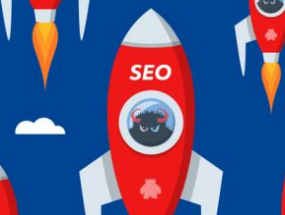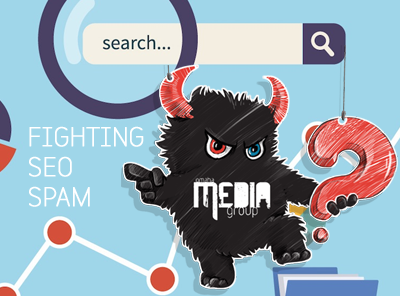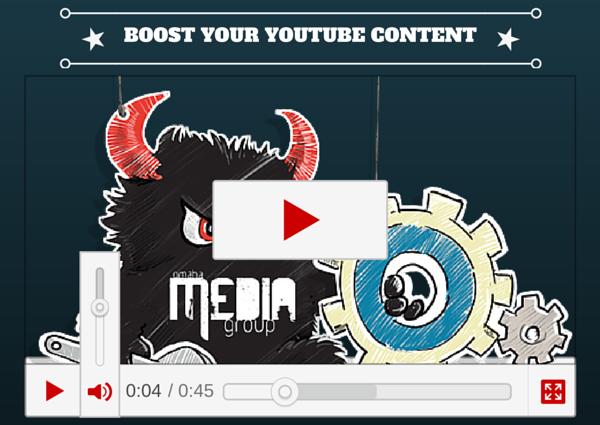 https://www.omahamediagroup.com/images/uploads/monster_gallery/Omaha-Media-Group-Black.jpg
admin
https://www.omahamediagroup.com/images/uploads/monster_gallery/Omaha-Media-Group-Black.jpg
admin

Is SEO Dead?
SEO is absolutely not dead. As long as people use Google search, SEO will be alive. However, let's recap. Money/buyer (i.e., purchase-intent) keywords are:
- Dominated by huge brands that 99% of the world can't outrank (without spamming).
- Returning less product pages and more articles and other forms of content.
- Triggering the knowledge graph, review aggregators, and more user-focused results.
What this means is it's time to seriously reevaluate the landscape. The days of ranking a products or services page first for these purchase-intent keywords are limited.
If we want to capture that traffic moving forward, there are three things we can do:
1: Pay for it
This is very straight forward. I like to use paid search as a remarketing tactic. We capture traffic from all corners of the web, and then when those people are ready to buy (using those money keywords), we use highly targeted paid ads to snag their business.
2: Create valuable content
If we go back to my first example, best headphones, the results are dominated by content that compares ratings and pricing for various headphones. No one shares, engages, or links to products and services pages. The fact is, no one except for us cares.
Instead of trying to jam those pages with links, create a piece of content that delivers what Google (and users) want. By creating value with your content, you open it up to earning social media shares and powerful links from relevant sites. If you want to compete against the big dogs for organic search real estate, content is your best option.
3: Optimize your website for the web
It's SEO (Search Engine Optimization), not GO (Google Optimization).
Yelp is a search engine. Facebook is a search engine. Twitter is a search engine. Amazon is a search engine. Pinterest is a search engine. YouTube is a search engine.
See where I'm going?
Each of these platforms offers unique benefits to the user. In a lot of cases, people looking for things on these platforms are likely to bypass Google altogether. For example, my friend just moved into a new loft. She does not like shopping and ended up purchasing all of the furniture from Etsy. I asked her how she arrived there. This is what she told me:
- Pinterest - She used Pinterest search to find decorating ideas. Using keywords like "loft decorations," she narrowed it down to the specific pieces of furniture she liked.
- Amazon - She then went to Amazon and searched with keywords that were based on the furniture she liked on Pinterest. She was looking for rustic furniture. Amazon didn't have a great selection of that type.
- Ebay - So she moved to Ebay, knowing that she could find cheap, secondhand (i.e., rustic) furniture there. She found that most things were a little "too used," so she moved on.
- Etsy - Finally, she landed on Etsy, knowing they specialize in unique handmade items. She purchased all the furniture from there. Boom!
Now, I realize she could've used Google to search for all these things. She chose not to, though, because she felt it was an extra step she didn't have to take. She chose to use those specific websites/platforms/search engines because each one was built to handle exactly what she was looking for.
Applying this to your website...
The long-winded point I'm trying to make is this: It's no longer just about optimizing your website for Google. It's about optimizing your presence across the web. By understanding who our target audience is and where they spend their time, we can attack those platforms and build an organic presence. If you're an attorney, you need to be on sites like Avvo, Lawyer.com and Find Law because they dominate the SERPS. If you're a local business, Yelp and Thumbtack are crushing it right now. If you have an e-commerce store, get your product on as many platforms where your customers are as possible (including Pinterest). If you sell large-ticket B2B services, SlideShare and LinkedIn are gold mines for connecting with C-suite executives looking for information. The list goes on and on.
Bringing it all home...
We need to educate non-marketers that times have changed. We can't just "rank and bank" for whatever we want anymore. We don't want to wait around until it's too late. This isn't a phase. This is the way it's going to be going forward, and we all need to get on board with it. As Google gets more intelligent, we need to get more intelligent about how we approach marketing. That doesn't mean looking for ways to beat the search engine algorithms. Instead, we must learn to use them to our advantage.
Let us show you the way of the SEO Force! Contact Us!
{contact-form}
Hire the team to help you with your website, app, or other marketing needs.
We have a team of digital marketers who can help plan and bring to life all your digital marketing strategies. They can help with social media marketing, email marketing, and digital advertising!
CONTACT US




Comments